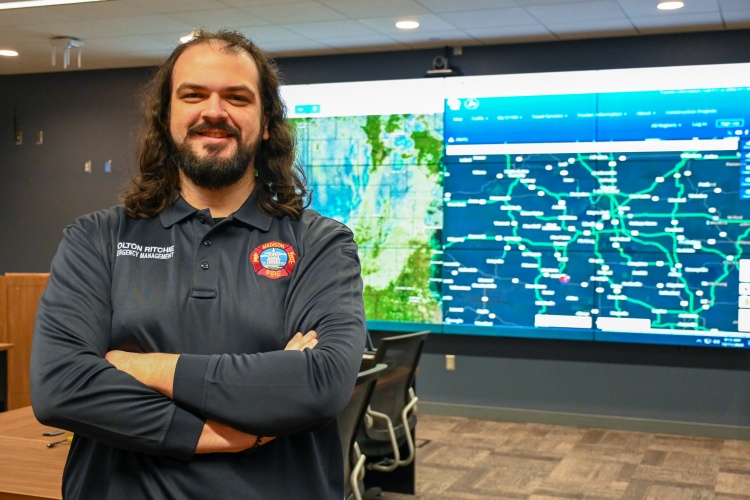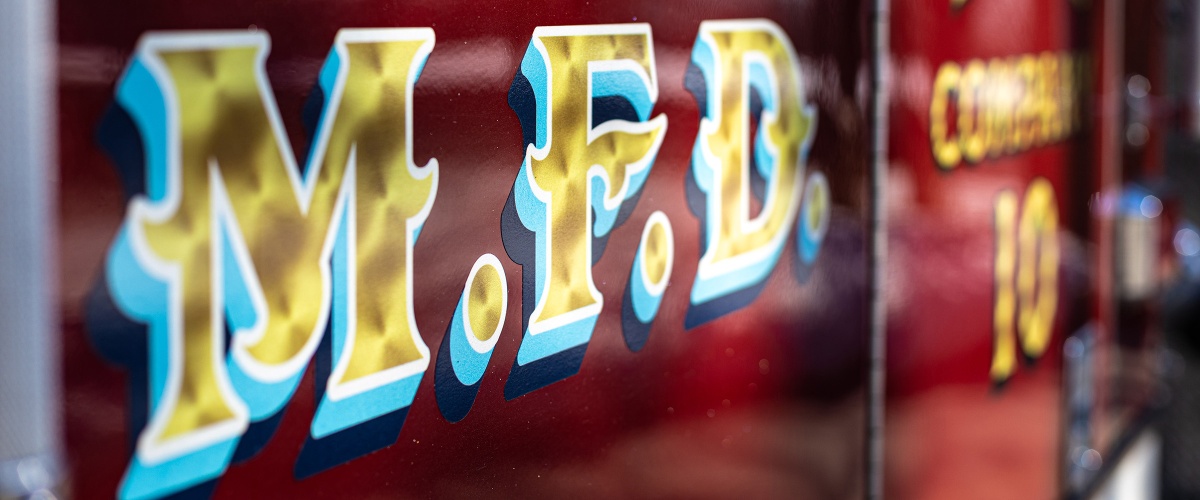Meet Emergency Management Coordinator Colton Ritchie
posted
What do you do as an Emergency Management Coordinator?
As the Emergency Management Coordinator, I’m responsible for ensuring that the City and its partners reduce risk and impacts of disasters and large emergencies. This means making sure the City develops comprehensive all-hazards plans so we can coordinate a response to any emergency. It also means taking a lead position in our emergency operations center during a response to coordinate our efforts and support the responders on the ground.
Before a disaster, I make sure that we train staff and test our plans with exercises, workshops, and training events. I work closely with the Public Information Officer (Cynthia) and other City communications staff to get preparedness messaging into the community before, during, and after disaster. I also work with partners to provide education to the community about how they can be prepared for emergencies.
Having a resilient population is one of the best ways we can help prepare for disaster.
What would you like others to know about your position that they may not already know?
While our role is most impactful during large-scale emergencies, practicing on the smaller emergencies is how we prepare. The same also applies to individuals— treating small emergencies or disruptions as a chance to review your plan and think about what you'd do if it was a worse situation helps you be prepared.
I also want people to recognize that mitigation (preventing or reducing impacts) is one of the best investments we make. Asking people to stay home if they can when we're getting heavy snow reduces the impacts. People often see these measures as a waste, since no emergencies happened, but those measures are the exact thing that helped prevent bad outcomes.
Overall, research estimates a $6-$10 reduction in response operations for every $1 spent on mitigation. Preparing ahead of time saves resources, lives, and money.
What are some simple things people can do today to be more prepared?
- Make a plan. Know what you need to do during an emergency that may require you to stay home for a while or to leave quickly.
- Make a kit. Be ready to go quickly and have some extra supplies on hand, ideally at least three days' worth.
- Have a NOAA weather radio. These can wake you up in the night during dangerous conditions. Have battery backups in case the power goes out. They are a great way to receive information even if other services are down.
Is there anything else you'd like to share about yourself that we didn't ask?
I’m from Alabama and got my start in disaster management throughout the southeast in tornado and hurricane response. While I’m not originally from Madison, I love the city and chose it from a pretty long list of potential places. It’s quickly become home, and I’m passionate about helping keep the city, everyone within it, and its neighbors as safe as possible.
This content is free for use with credit to the City of Madison Fire Department.
